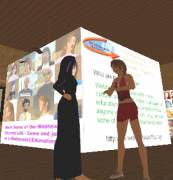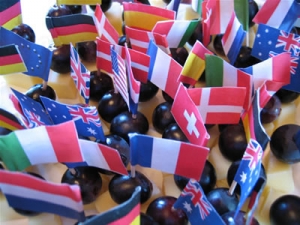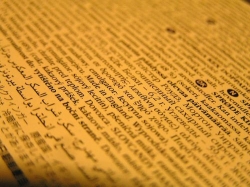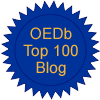Are there any B-people in Second Life? And does culture still matter?
 absolutely virtual
absolutely virtual
Second Life is a virtual world but is it also a new culture which we can explore in the same way we can come to new cultures in the real world? To consider some of these issues I talked with Helen Keegan of Salford University who first visited Second Life on Christmas Day, 2006 and Sus Nyrop, a freelance educational consultant in Denmark who has visited both Danish and other areas of Second Life. We wondered whether your appearance matters and if it helps to have cultural informants as a guide.
absolutely flexible
BSamfundet is a new society in Denmark promoting flexible working hours. The structure of the day and attitudes to time are aspects which vary greatly across cultures. B-samfundet means B-society and by catering to those who only come alive after 10 in the morning they maintain that this will reduce traffic jams and will help those so-called B-people who are only fully functional later in the day. But is this an issue that is going to resonate in Denmark where work starts and finishes early? To answer this question I took a straw poll of my colleagues in Grenaa and I did manage to unearth some shattered B-people.
absolutely important
Does Culture Still Matter? That’s the name of the annual conference of the Intercultural Management Institute in Washington coming up on March 15 and 16. We were very honoured to be invited to cover the conference in an upcoming show.
The next show is our one year anniversary show and will be coming to you from our German station on March 23rd.
The Host of this show is: Anne Fox





 Believe it or not – we are
Believe it or not – we are  And this came in last minute: ‘absolutely intercultural!’ has been named a
And this came in last minute: ‘absolutely intercultural!’ has been named a 
